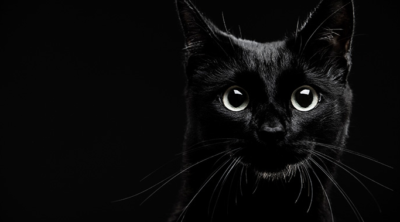
Cystitis is a common bladder ailment that troubles the feline world. Many feline parents often worry about cystitis in cats and ask if it can be treated. Let us have a look at feline cystitis and go through some of the possible treatments for this common ailment.
Cats are delicate creatures who think they own the world. Felines tend to have many health problems due to their weak digestive as well as urinary system. One of the common health problems many cat owners complain their cat(s) suffers from is the problem of urinating. The cat tends to stop using the litter box and has accidents around the house. Sometimes, the cat passes just a few drops of urine and appears to be in a lot of pain. At times, you may also observe a few drops or clots of blood and in some extreme health cases, the urine passed is red in color. This indicates that your cat is suffering from urinary tract obstructions and needs medical attention. Cystitis is a common health complaint that veterinarians come across. Feline cystitis is associated with other health conditions like feline urological syndrome, feline lower urinary tract disease (FLUTD), and feline idiopathic cystitis. This condition needs medical attention and if not treated soon, it may put the cat’s life at risk. Let us go into the details of feline cystitis and its causes, symptoms and treatment in this CatAppy article.
What is Feline Cystitis?
Cystitis in cats is also called ‘crystals’ as tiny crystals or sand-like particles are formed within the urine. This condition occurs due to inflammation of the bladder. This condition affects both male and female cats, but is more common in females. Cystitis in male cats often turns out to be a very dangerous condition. The exact cause of cystitis is unknown. In case of dogs and humans, it is often thought that the condition occurs due to a bacterial infection. However, in case of cats, there are no bacteria present in their urine. Thus, the condition is termed as idiopathic in nature.
It has been observed that if cats are spayed or neutered too early, they may have higher counts of crystals in their urine. Litter boxes that are not cleaned daily also cause increase in bacterial count in the cat’s systems. In some cases, dry food also tends to aggravate the condition. However, these factors do not lead to cystitis, but worsen the condition of a cat suffering from cystitis.
How do You Suspect if Your Cat has Cystitis?
If your cat acts unusual when urinating, it means there is definitely something wrong with its health. Apart from this, you need to spot other symptoms of cystitis. These symptoms include frequent urination. However, the animal will be able to pass just a few drops of urine. Your cat may discard the litter box and urinate on cold surfaces like sink, bathroom floor, etc. This is because, the condition is very irritating and they find a cold, hard surface comforting when passing urine. The urine passed will have a foul odor and have a thicker consistency. You may also observe drops of blood or clots in the urine. The cat becomes irritable and licks his/her genitals continuously. You will also hear your cat cry or meow in pain when passing urine.
Can Cystitis Be Treated?
As a pet owner when you hear about cystitis, the question ‘can it be treated?’ will pop up in your mind instantly. This condition can be treated successfully, especially when prompt medical treatment is given. In order to treat your cat, the vet may carry out urinalysis tests. Based on the results, he may prescribe antibiotics to treat urinary tract infection in the cat. In most cases, the cat begins to feel better within a week or so. The vet may even have to insert a syringe through the abdomen into the bladder and draw urine, in case of severe bladder obstruction. This procedure is carried out only in case of an emergency. The vet may also feed the cat more fluids, to flush out the urinary system. In case of urethra blockage or bladder stones, the vet may have to try catheterization or surgery (perineal urethrostomy) to unblock the obstruction.
Apart from this, you need to give your cat more fluids in the diet. The aim is to reduce the urine pH below 6.5. If the pH is more than 6.5, there are chances of crystal formation in urine. If your cat eats dry food, you need to moisten it or start giving it wet food. Encourage your cat to drink more water.
Cystitis in cats can be treated under correct medical guidance. This condition is known to recur, therefore make sure your cat takes in plenty of fluids in his/her diet. If you observe anything peculiar or out of ordinary in your cat, make sure you seek medical attention. This condition can turn into a serious health complication, when not treated at the earliest. Keep in mind, a healthy cat is equal to a happy owner.


